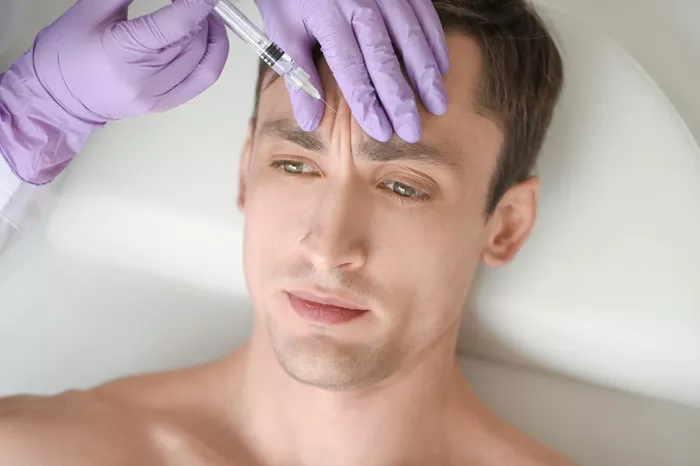Hair transplantation is a significant procedure for those experiencing hair loss. It requires careful post-operative care to ensure optimal results. One common question is whether it is safe to drink beer after a hair transplant. This article will explore the effects of alcohol, particularly beer, on the healing process and overall outcomes of hair transplantation.
Understanding Hair Transplantation
Hair transplantation involves transferring hair follicles from one part of the body, typically the back or sides of the scalp, to balding or thinning areas. The two primary techniques are Follicular Unit Transplantation (FUT) and Follicular Unit Extraction (FUE). Both methods require a skilled surgeon and meticulous post-operative care.
Follicular Unit Transplantation (FUT)
FUT involves removing a strip of scalp skin from the donor area. The strip is then divided into individual follicular units, which are implanted into the recipient area. This method often results in a linear scar but can yield a high number of grafts.
Follicular Unit Extraction (FUE)
FUE involves extracting individual hair follicles directly from the donor area. These follicles are then implanted into the recipient area. FUE is less invasive than FUT and leaves minimal scarring, but it can be more time-consuming.
The Healing Process After Hair Transplant
The success of a hair transplant heavily relies on the post-operative care. The first few weeks after the procedure are crucial for the newly transplanted follicles to establish themselves. Patients must follow specific guidelines to avoid complications and ensure the best possible outcome.
See also: Is a Hair Transplant Worth It?
Immediate Post-Operative Care
After the surgery, the scalp will be sensitive and may exhibit redness and swelling. Patients are advised to keep the scalp clean and dry, avoid direct sunlight, and refrain from strenuous activities. The surgeon will provide detailed instructions on washing the hair and caring for the scalp.
Long-Term Care
Long-term care includes regular check-ups with the surgeon, maintaining a healthy diet, and avoiding harmful substances. Proper care during this period can significantly impact the overall success of the transplant.
Alcohol and Its Effects on the Body
Alcohol, including beer, can have various effects on the body. Understanding these effects is essential to comprehend how alcohol consumption might impact the healing process after a hair transplant.
Short-Term Effects of Alcohol
Alcohol is a central nervous system depressant. It affects the brain, liver, cardiovascular system, and immune system. Short-term effects include impaired judgment, dehydration, and increased heart rate. Alcohol can also cause inflammation and affect blood clotting.
Long-Term Effects of Alcohol
Chronic alcohol consumption can lead to liver disease, cardiovascular problems, weakened immune function, and nutritional deficiencies. These long-term effects can interfere with the body’s ability to heal and regenerate tissues.
Can We Drink Beer After Hair Transplant?
The Impact of Alcohol on Healing
Blood Thinning Properties
Alcohol has blood-thinning properties. This can increase the risk of bleeding and bruising during the initial healing phase. For hair transplant patients, this can mean a higher chance of complications, such as graft displacement or prolonged bleeding.
Dehydration
Alcohol is a diuretic, leading to increased urine production and potential dehydration. Dehydration can impair wound healing and affect the health of newly transplanted hair follicles.
Inflammation
Alcohol consumption can cause systemic inflammation. Inflammation can interfere with the healing process and increase the risk of infection.
Recommendations for Post-Operative Alcohol Consumption
Immediate Post-Operative Period
Most surgeons advise against consuming alcohol for at least the first week after a hair transplant. This period is critical for the newly transplanted follicles to establish themselves. Avoiding alcohol can help minimize the risk of complications.
Gradual Reintroduction
After the initial healing period, patients may gradually reintroduce alcohol into their diet. It is essential to do this in moderation and under the guidance of the surgeon. Patients should monitor their scalp for any signs of irritation or adverse reactions.
Potential Risks of Ignoring These Recommendations
Ignoring the recommendations regarding alcohol consumption can lead to several complications:
Increased Bleeding: Alcohol can prolong bleeding, increasing the risk of graft displacement.
Delayed Healing: Dehydration and inflammation caused by alcohol can delay the healing process.
Infection Risk: Weakened immune function due to alcohol can increase the risk of infection.
Nutritional Considerations After Hair Transplant
Proper nutrition plays a vital role in the healing process after a hair transplant. A balanced diet can support overall health and improve the success rate of the procedure.
Essential Nutrients for Hair Growth
Proteins
Proteins are the building blocks of hair. Consuming adequate protein is crucial for the health of newly transplanted follicles.
Vitamins and Minerals
Vitamin A: Supports cell growth and immune function.
Vitamin C: Aids in collagen production and wound healing.
Vitamin E: Has antioxidant properties and supports skin health.
Zinc: Essential for tissue repair and immune function.
Iron: Important for oxygen transport and overall cell health.
Foods to Include in the Diet
Lean meats, fish, and eggs for protein.
Fruits and vegetables for vitamins and antioxidants.
Nuts and seeds for healthy fats and minerals.
Whole grains for energy and overall health.
Lifestyle Changes to Support Hair Transplant Success
Hydration
Staying hydrated is crucial for overall health and the healing process. Drinking plenty of water can help maintain skin elasticity and support the health of hair follicles.
Avoiding Smoking
Smoking can impair blood flow and reduce oxygen supply to the scalp, negatively impacting the healing process. Avoiding smoking is essential for optimal results.
Stress Management
Stress can affect overall health and hair growth. Incorporating stress management techniques, such as yoga, meditation, or regular exercise, can support the healing process.
Conclusion
It is advisable to avoid drinking beer and other alcoholic beverages immediately after a hair transplant. The initial healing period is critical for the success of the procedure, and alcohol can interfere with the body’s ability to heal. Following the surgeon’s recommendations regarding post-operative care, including alcohol consumption, can significantly impact the overall outcome. Maintaining a healthy diet, staying hydrated, and adopting a healthy lifestyle are essential components of a successful hair transplant recovery.
You May Be Interested In

